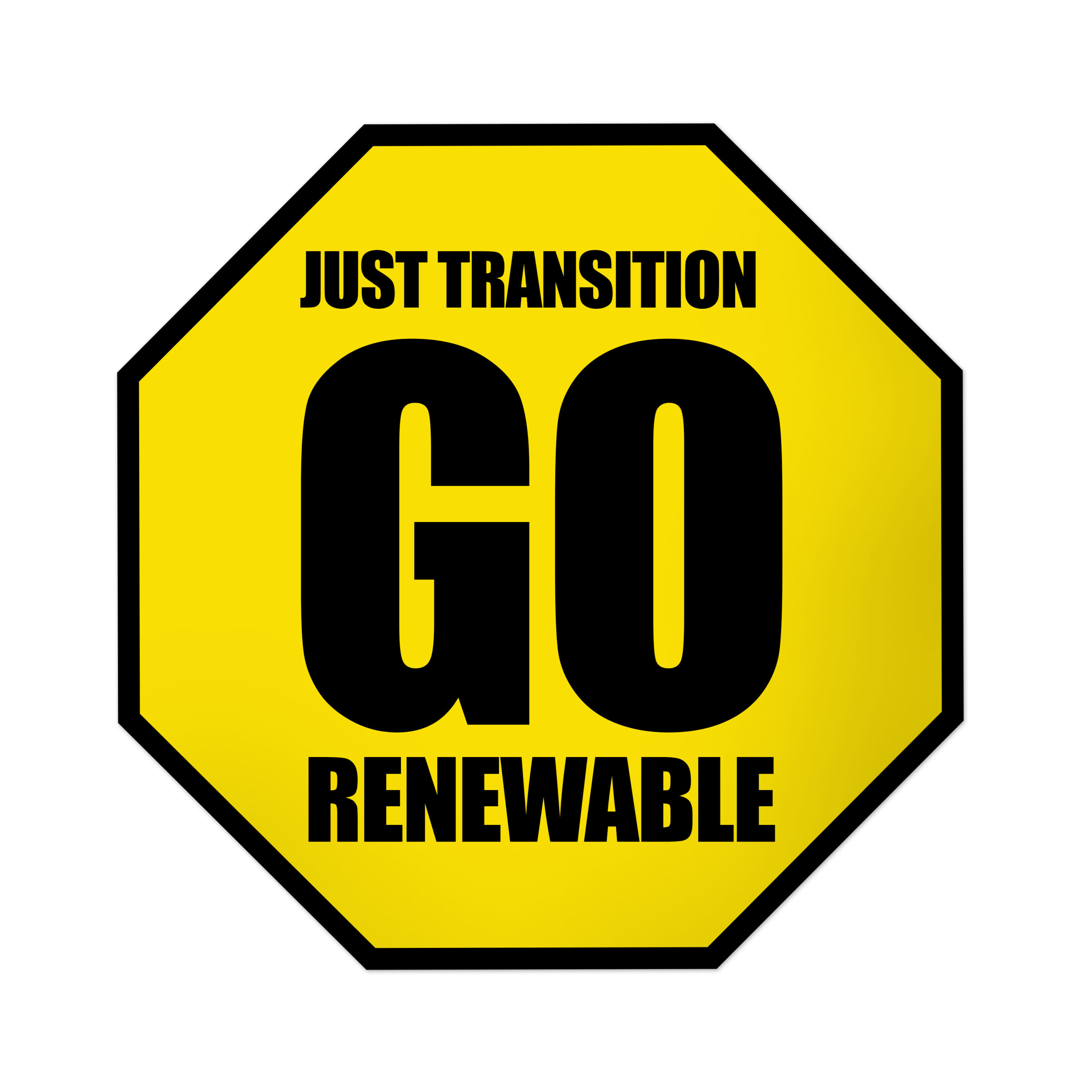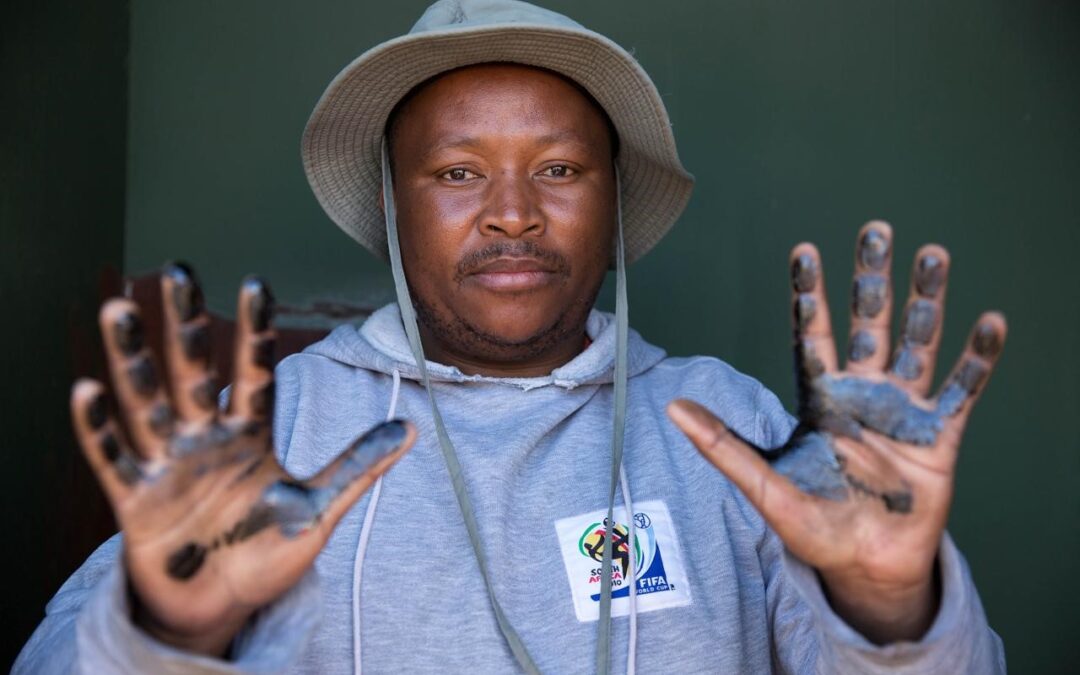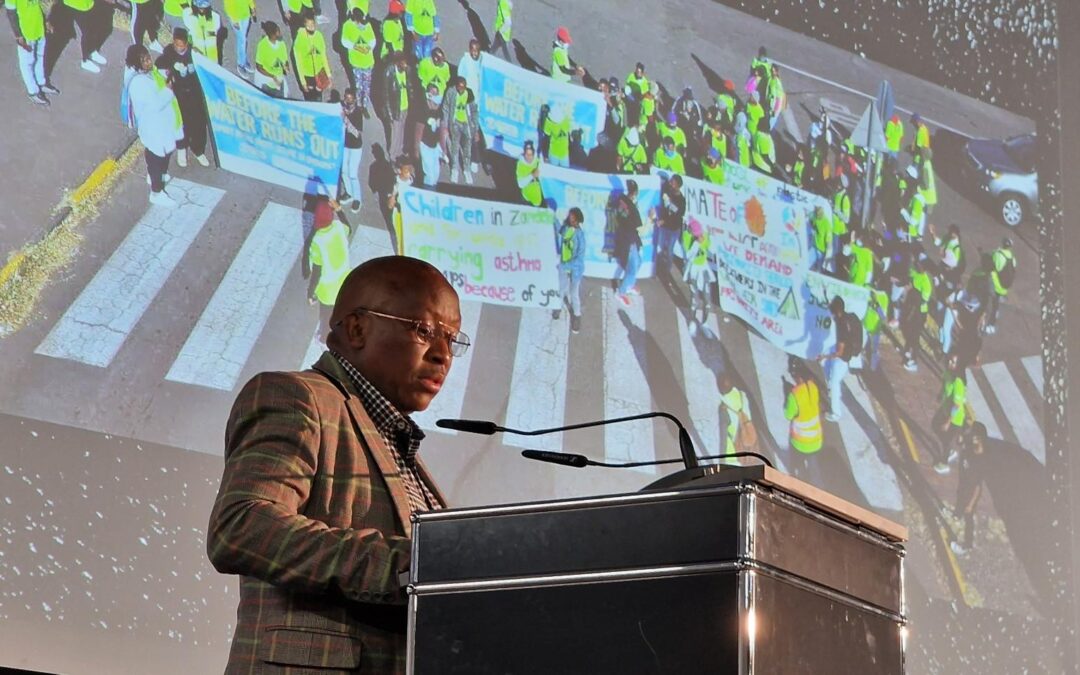
Media Statement by: Africa Coal Network
The Africa Coal Network has 12 members of the Network at the CoP28. The Network is active across 26 countries on the continent and works with more than 86 organisations in these countries on challenging the expansion of coal and other fossil fuels and working towards a just transition in Africa that is based upon Africa’s renewable energy potential serving Africans first.
Renewable Energy Potential in Africa
“Africa has the greatest renewable energy potential in the world,” says Marina Agotimevor Co-ordinator of the Africa Coal Network. “We have the highest global average rate of continuous sunshine making the continent more favourable for solar energy production compared with other regions.”
“Despite our abundant and sustainable solar and wind resources, the continent currently has a very low generation capacity,” says Marina. According to the International Energy Agency IEA, Africa has 60% of the world’s best solar resources but only 1% of solar generation capacity globally.
Simultaneously, a significant number of Africans suffer the injustice of lack of access to affordable, clean energy. “We believe that the challenges of energy access can best be addressed through community-led and socially owned renewable energy, especially when governments fail to deliver affordable clean energy services to the people. Through social collaboration on energy, infrastructure costs can be shared in solidarity in communities,” says Marina.
Based on its most recent data analysis, the IEA reports that Africa needs $190 billion in annual investments between 2026 to 2030, with two-thirds of this going to clean energy to achieve its energy and climate goals. The potential exists for innovative and reformative financing mechanisms to accelerate renewable energy. Especially bottom-up financing which has a more direct benefit for grassroots communities seeking energy justice.
We, the Africa Coal Network demand that this COP28, the 28th annual United Nations (UN) climate meeting where governments will discuss how to limit and prepare for future climate change should be a COP focused on just renewable energy acceleration, financing and deployment across Africa with an immediate commitment to phase out fossil fuels.
Our demands as the ACN include:
- A Just Transition to a regenerative and inclusive economy
- Enabling community-led socially owned renewable energy
- Accessible, innovative and reformative financing mechanisms
- Financial support for communities exposed to floods and droughts
- No false solutions such as green hydrogen, gas and ‘clean coal’
- No new fossil fuels
- Open democracy where all Africans have a say about the future of energy on the continent
Our demands align to those made by the African people at the People’s Climate Summit held in Nairobi in September 2023 during the Africa Climate Summit. African people demand justice, decolonization of the continent’s economic system and repayment of climate debt. We also demand an end to energy capture, a stop to fossil fuel projects and rejection of false solutions and support a big focus on Renewable Energy.
Speaking on behalf of the Ghana Chapter of the ACN Patricia Odeibea Bekoe of 350 Ghana
says: “Africa as a continent contributes less than 4% of greenhouse gas emissions globally but is currently facing harsh effects and will face even harsher effects of Climate Change in the years to come. Why should this be?”
“To keep to the 1.5°C limit, we need to transition from coal, oil and gas and other dangerous sources of energy such as nuclear, to a cleaner, just and more sustainable energy system that serves Africans first. Having the highest RE Energy potential, let’s lead the way as Africa. This has however not been the case as accessing and raising funds for a transition to clean and just renewable energy has been the biggest hurdle for Africa,” says Marina.
“It’s a myth that fossil fuels are cheaper and more viable to invest in than renewable energy. Renewable energy is financially viable and the cheapest energy source at current costs and lower prices are projected in the future and can take a country like Malawi out of energy poverty in the shortest timeframe,” says Joseph Sakala, of the ACN Malawi Chapter. If one factors in the externalised costs of air pollution and harms to health such as asthma and lung disease, the case for renewables is irrefutable. According to the World Bank 88% (42 of 48) of sub-Saharan countries rank amongst the most at-risk for negative health outcomes associated with climate change.
“The renewable energy sector is one that Africa has the opportunity to decide on, as to how it is structured. It should be a sector that prioritises local content and local employment. This will create more decent jobs for communities. A recent brief by the International Labour Organisation (ILO)[2] affirmed a positive job creation effect from renewable energy, due to longer and diverse supply chains, labour intensity, increased net profit margins and less hazardous working conditions,” says Marina.
Leapfrog to Renewable Energy
A move to renewable energy can create new jobs, provide energy for increased economic activity and development, and reduce emission levels in the region. Developing energy infrastructure in the region will come with substantial capital investment because large sectors of the population do not have any energy or power, or the start-up costs for renewable energy capacity. Countries in the Global North installed their infrastructure when costs were high. However, solar and wind prices have reduced by 80% in the last decade.
Improvements and rapid scaling of technologies have resulted in better performance, storage capacity, materials, improved access and affordability. Additional opportunities for increased savings exist if African governments can leverage current fossil fuel subsidies to incentivise a shift to renewable energy. These can create a positive ripple effect by increasing the use of cleaner energy, increasing local production, stimulating local economies and encouraging circular economic policies, which will result in reusing, reducing, and redesigning material waste.
Africa is endowed with resources and well positioned to resolve its energy problems by investing in and utilising renewable energy in a just and equitable manner. Increased communications and education will respond to current information gaps regarding the opportunity for cheaper and cleaner energy. Engaging and communicating with communities using their languages, with messages that resonate, such as job opportunities, health advantages, and cost-saving, will contribute to increased uptake. Socially owned renewable energy delivery will break the cycle of corporate-led energy systems that see energy provision as a profit-making scheme rather than a basic service and right for people based upon environmental justice principles of solidarity, equity and an open democracy.
Media Contact:
Tsepang Molefe: +27 74 405 1257,
Spokesperson:
Ing. Marina Agortimevor, Coordinator, Africa Coal Network (ACN), +233 24 515 6040,



